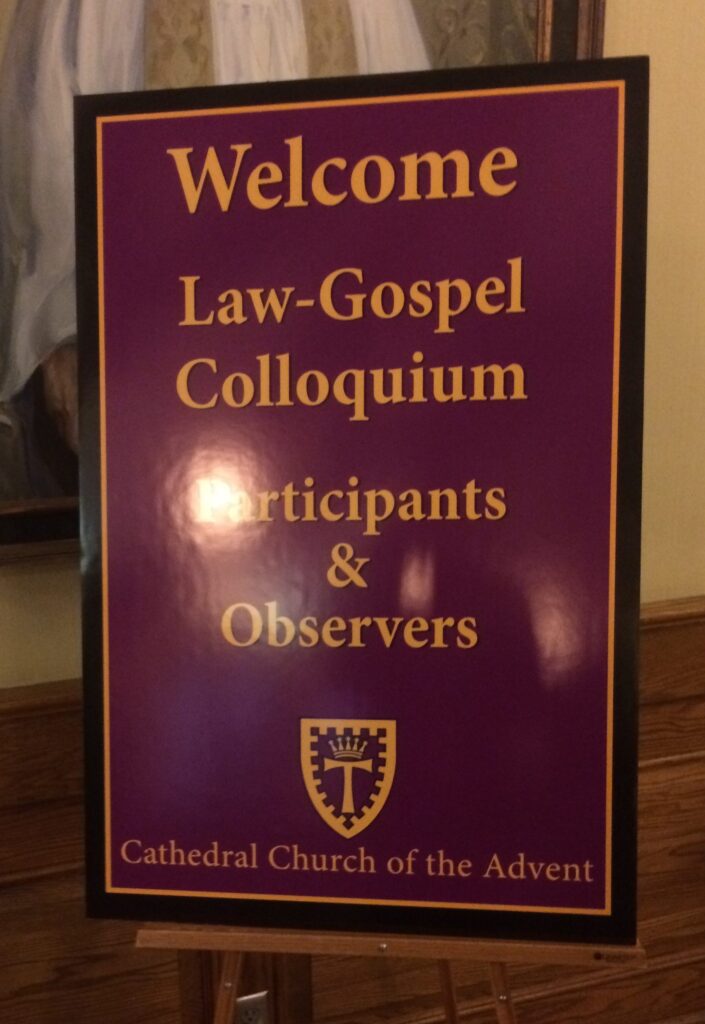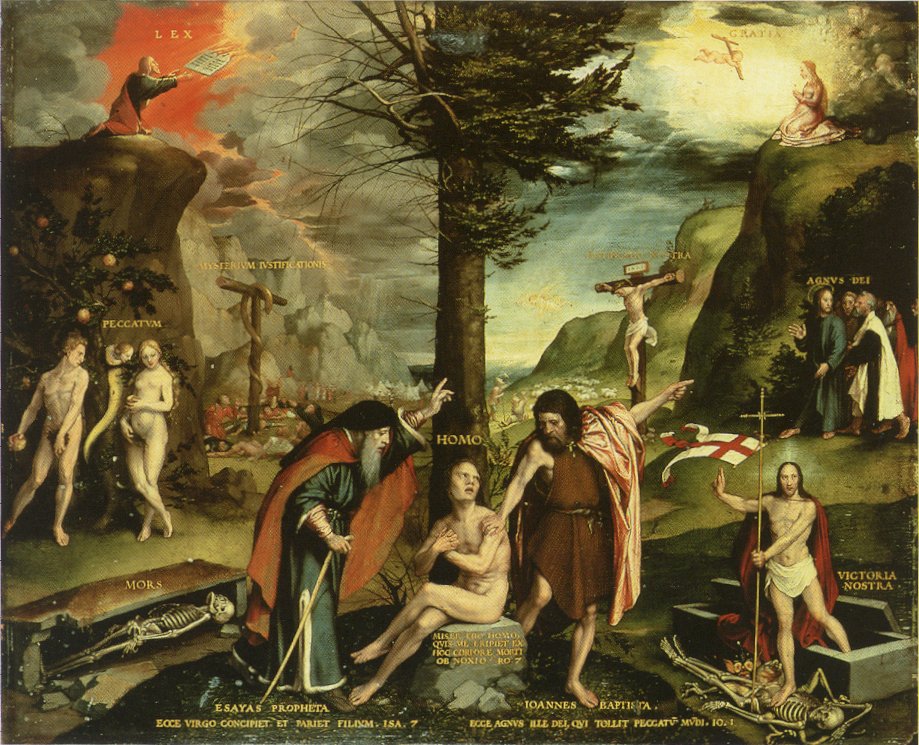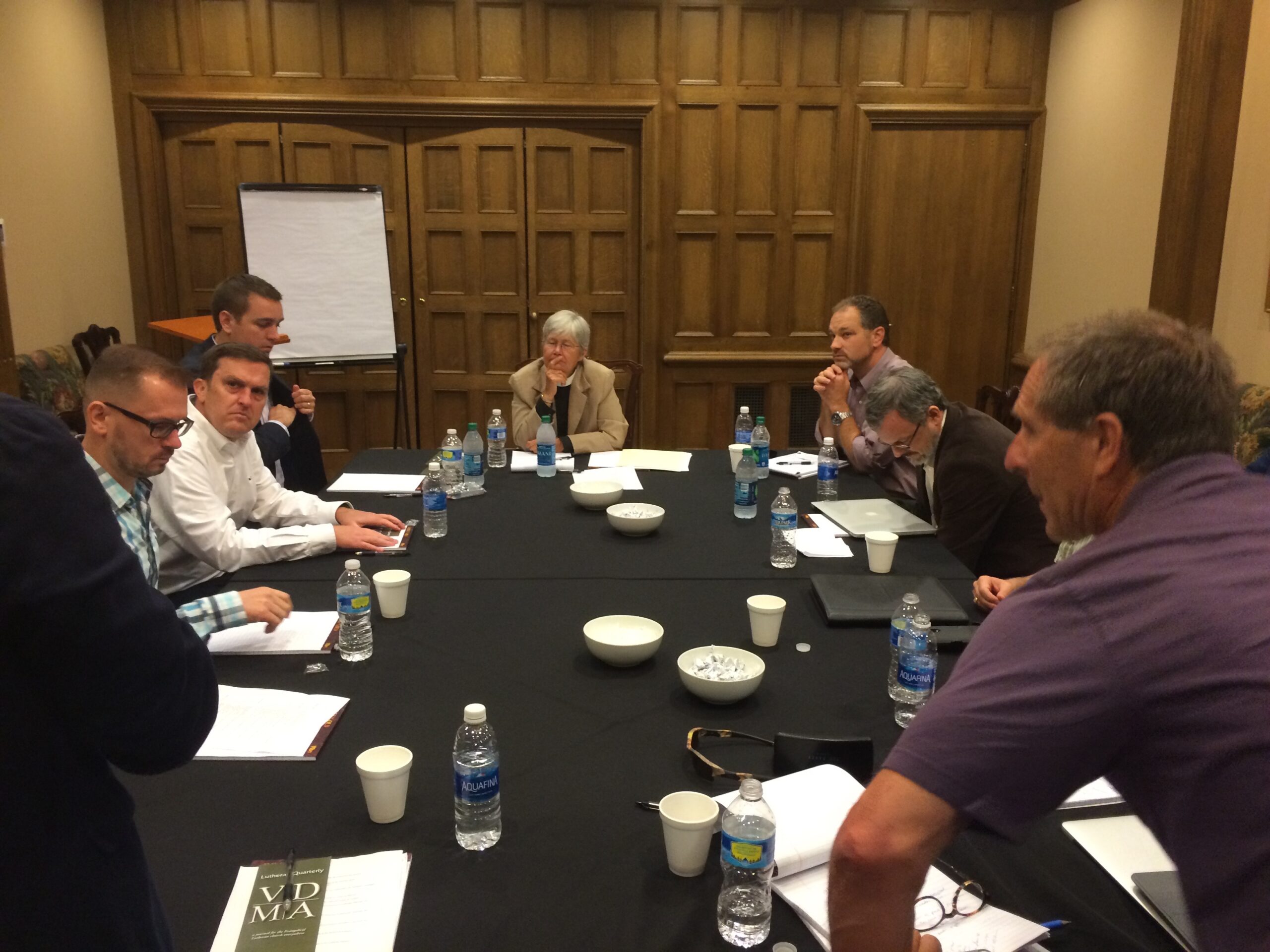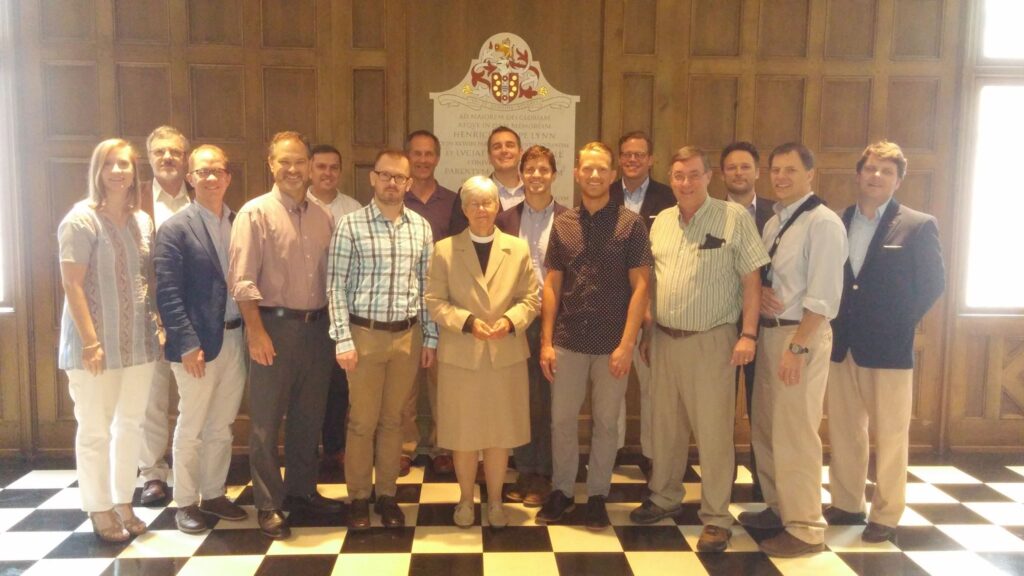 Episcopalians in love with the distinction of Law and Gospel? Reformed theologians interested in Law and Gospel? That may come as a surprise to many Lutherans. But that is in fact the case. A group of Episcopalian, Presbyterian, and Lutheran theologians gathered for a Colloquium on Law and Gospel sponsored by the Cathedral Church of the Advent in Birmingham, Alabama from July 14-16. Many of those involved are involved in the Mockingbird network which has its own unique love affair with the distinction of law and gospel.
Episcopalians in love with the distinction of Law and Gospel? Reformed theologians interested in Law and Gospel? That may come as a surprise to many Lutherans. But that is in fact the case. A group of Episcopalian, Presbyterian, and Lutheran theologians gathered for a Colloquium on Law and Gospel sponsored by the Cathedral Church of the Advent in Birmingham, Alabama from July 14-16. Many of those involved are involved in the Mockingbird network which has its own unique love affair with the distinction of law and gospel.
It was an incredibly stimulating and encouraging discussion. We found a number of things to be very impressive. First, it was amazing how thoroughly our counterparts in the Reformed traditions not only loved the distinction between law and gospel, but were well versed in the literature whether it was Luther, the Lutheran Confessions, C. F. W. Walther, or the debates of the last century from Karl Barth to Werner Elert! This provided an incredibly rich foundation on which to engage in the issues related to law and gospel along with the differences between the traditions.
The presentations included:
The Law in the Lutheran and Reformed Traditions
Piotr Malysz—Beeson Divinity School
Michael Allen—Reformed Theological Seminary
The Gospel in the Lutheran and Reformed Traditions
Charles Arand—Concordia Seminary
Scott Swain—Reformed Theological Seminary
Place and Purpose of the Law/Gospel Distinction in Lutheran and Reformed Theology and Ministry
Steven Paulson—Luther Seminary
Kelly Kapic—Covenant College
Lutheran appraisal of the Law and the Gospel in the Reformed tradition
Erik Herrmann–Concordia Seminary.
Reformed appraisal of the Law and the Gospel in the Lutheran tradition
Kate Sonderegger–Virginia Theological Seminary
Mark Mattes (Grandview College) and Kevin Vanhoozer (Trinity Evangelical Divinity School) will be writing an assessment of the discussion to conclude the book.
Moderator: Jonathan A. Linebaugh—University of Cambridge
There was widespread agreement among the participants about the importance and urgency of distinction of the Law and the Gospel for pastoral care and ministry. In his introduction, Jonathan Linebaugh had several beautiful examples of it in literature, particularly, a scene from George Eliot’s Janet’s Repentance, and this poignant example from William Inge’s My Son is a Splendid Driver:
“Every morning on the front porch we would see Mrs. Holt leave her house and start for the Catholic church, on her way to mass.
‘She doesn’t miss a day,’ Mother observed. There was a dedication about the woman that always gave us pause. ‘I wish I had a God to pray to now,’ Mother sometimes said, ‘but I don’t seem able to find Him.’
Mother had stopped going to church. ‘Church isn’t the place to go with your troubles. Church is just a place to go when you’re feeling good and have a new hat to wear.’ There was a little bitterness in what she said, a little self-pity, but there was also truth. Our minister would have been the last person in the world she could have talked to, to have lifted the curse she felt upon her and save her from feeling damned. She would have embarrassed the man into speechlessness had she gone to him with her story. He would have been unable to look at her or my father without coloring.
Most of our morality, I was beginning to think, was based on a refusal to recognize sin. Our entire religious heritage, it seemed to me, was one of refusal to deal with it.”
So it was that most of the discussion centered on the nature and role of law.
The first issue is the definition of the law. The Reformed participants tended to frame the law within the context of a covenant. But by covenant, they generally mean a context in which the law expresses the gracious/beautiful will of God (or the nature of our relationship to God) from eternity and into eternity. Such a definition included both aspects of faith and obedience. On the other hand, the Lutherans were concerned about giving the law rather than the gospel the role of defining the entirety of our relationship with God. By making obedience part of the foundational definition for the divine-human relationship, the gospel seemed to be merely a means to an end — it was simply getting us back on track toward keeping the law and thus our relationship with God.
A key moment occurred in the discussion when Jonathan Linebaugh asked whether or not we would regard God’s words to Adam and Eve not to eat of the tree in the garden as law or command? The Reformed participants said “yes,” (it was a “covenant of works”), the Lutherans, “no” (but it wasn’t gospel either…it was gracious invitation). Similarly, the Reformed gave the prelapsarian command in Genesis 3 a foundational role in defining the nature and relationship of the law and gospel. The Lutherans gave preeminence to Galatians 3. Consequently the Reformed tended toward unity and synthesis, the Lutherans antithesis and dialectic.
A second and related issue focused on the third use of the law (not surprisingly). For the Reformed, it tended to be conceived primarily as nudging and prodding us to live as God envisioned for us while for the Lutherans it might be portrayed as channeling our activities in God pleasing directions. Related to this also was the role of reason and wisdom in discerning how we apply the law to specific situations.
Related issues included the definition of law and gospel as content (verba dei) and as function/effect (opera dei).
Overall, it was a terrific two days with collegial and lively discussion and a real effort to gain understanding. Our host, the Cathedral Church of the Advent, was enormously gracious and hospitable. All those involved were incredibly thoughtful, well-read, and genuinely appreciative of each other. The papers will be published in a book by Eerdmans next year. So stay tuned….




Leave a Reply
You must be logged in to post a comment.